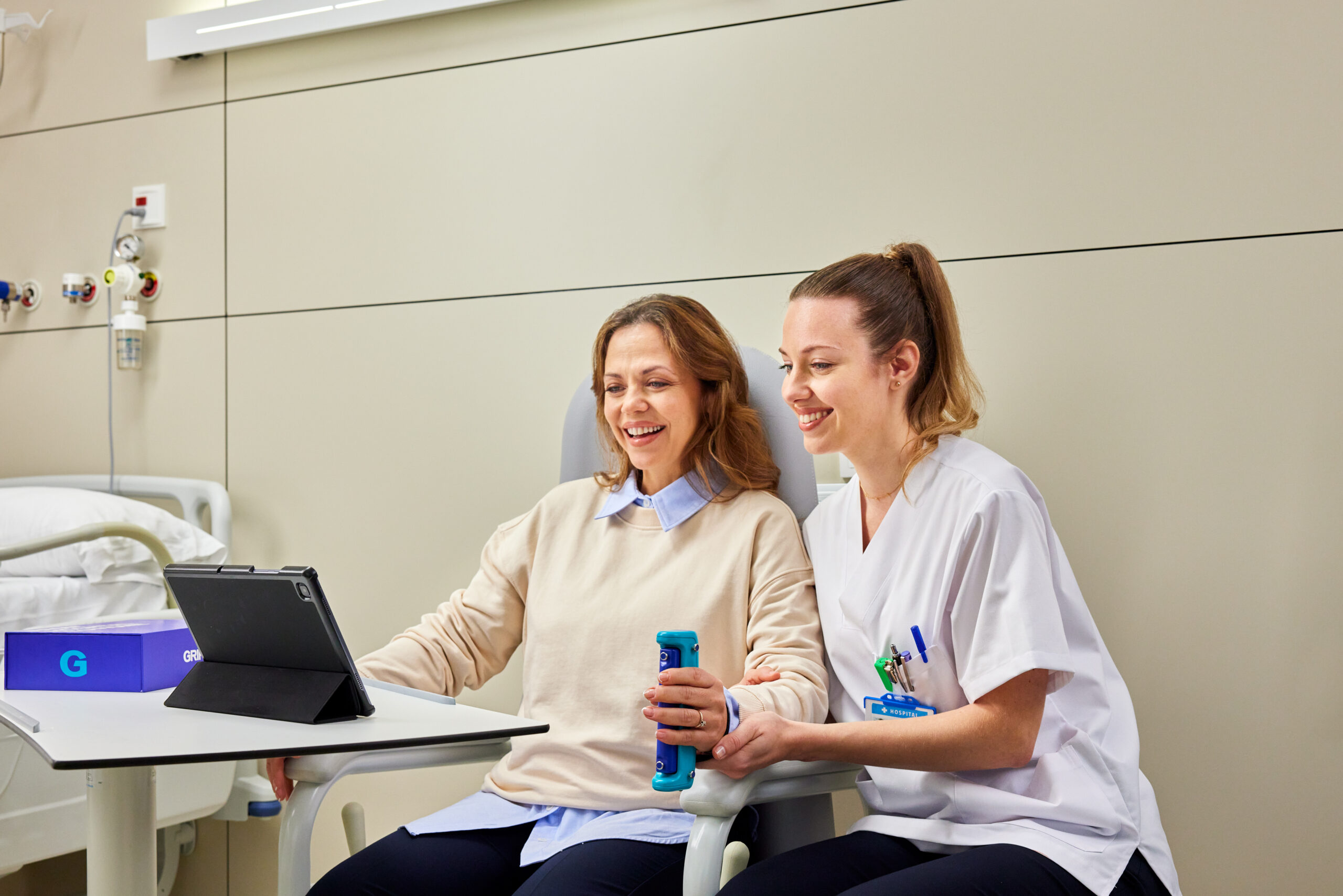GripAble and Imperial College London awarded Innovate UK BMC grant to develop next-gen soft sensors for paediatric upper limb therapy
GripAble, the mobile assessment and training platform for home-based rehabilitation, and Dr Firat Güder from the Department of Bioengineering at Imperial College London, have been awarded a grant worth over £800,000 by the Biomedical Catalyst (BMC) to bring SqueezAble, which combines novel soft-sensing technology and interactive gamification to revolutionise upper-limb therapy for paediatric cerebral palsy patients, to the clinic.
In the UK, there are an estimated 187,000 children living with an arm disability, and 85 million worldwide. Without regular occupational therapy for upper limb and hand strength, dexterity and movement range, a child’s condition is likely to deteriorate and impact their ability to live in functional independence in adulthood. Many arm disabilities are linked to neurological disorders, such as Cerebral Palsy, which affects coordination, precision, and timing of movements.
The grant was awarded as part of the BMC Feasibility and Primer Awards 2021 competition run by Innovate UK to support UK registered businesses to develop innovative healthcare products, technologies, and processes. The project team will work with children with Paediatric Cerebral Palsy to develop SqueezAble, which builds on the company’s strong track record, having now commercialised its first portable therapeutic hand-grip devices, the GripAble Pro and the GripAble Home, for people with a range of musculoskeletal and neurological conditions.
GripAble will partner with Imperial’s Guder Research Group, which developed the underlying patent-pending soft-sensor technology. Together with an award-winning team of OTs, clinical specialists, and medical device engineers, the project is aiming to advance the
current prototypes toward clinical translation.
Dr Mike Mace, chief technology officer and co-founder of GripAble, said:
“Children living with an arm disability must learn to independently complete bimanual activities of daily living, requiring them to use both hands simultaneously, to be able to complete everyday tasks like eating, writing, and washing. To support them with this, we have a vision of a next-gen sensor which seamlessly integrates with and complements current occupational therapy by incorporating novel soft-sensing technology that will enable training of bimanual hand function by digitising existing soft therapy tools such as stress balls and Theraputty, in combination with gamification and virtual tasks.
“The project will incorporate user-centred design processes to develop and test SqueezAble with our target user group. As well as developing the new SqueezAble technology, over the next two years, we plan to create new bimanual games for training functional movement on GripAble’s software platform extending our current unimanual games.”
Dr Firat Güder from Imperial College London said:
“This project will allow us to build a medical device and an entirely new concept to address a large gap in current practice, especially valuable for the rehabilitation of paediatric patients. My team and I are extremely excited to work with GripAble and other partners on this project, which will be a great learning opportunity for all those involved.”
Business consultancy Vandenbergh UK are providing project management support for the SqueezAble project. Director Hannah Van Den Bergh commented:
“We are delighted to see GripAble and Imperial College London secure funding for this wonderful project which will be an absolutely critical development for the occupational therapy community.”
Want to find out more about GripAble?
GripAble is an award-winning technology company developing an end-to-end digital platform for assessment and gamified rehabilitation for people with physical and cognitive disabilities. The company has been developing its solution over the last eight years in consultation with thousands of occupational and physical therapists and patients across multiple clinical conditions and leading academic institutions, including Imperial College London. GripAble launched its mobile app along with its first hand-held sensor in 2020, focusing on supporting those undergoing upper limb rehabilitation.

